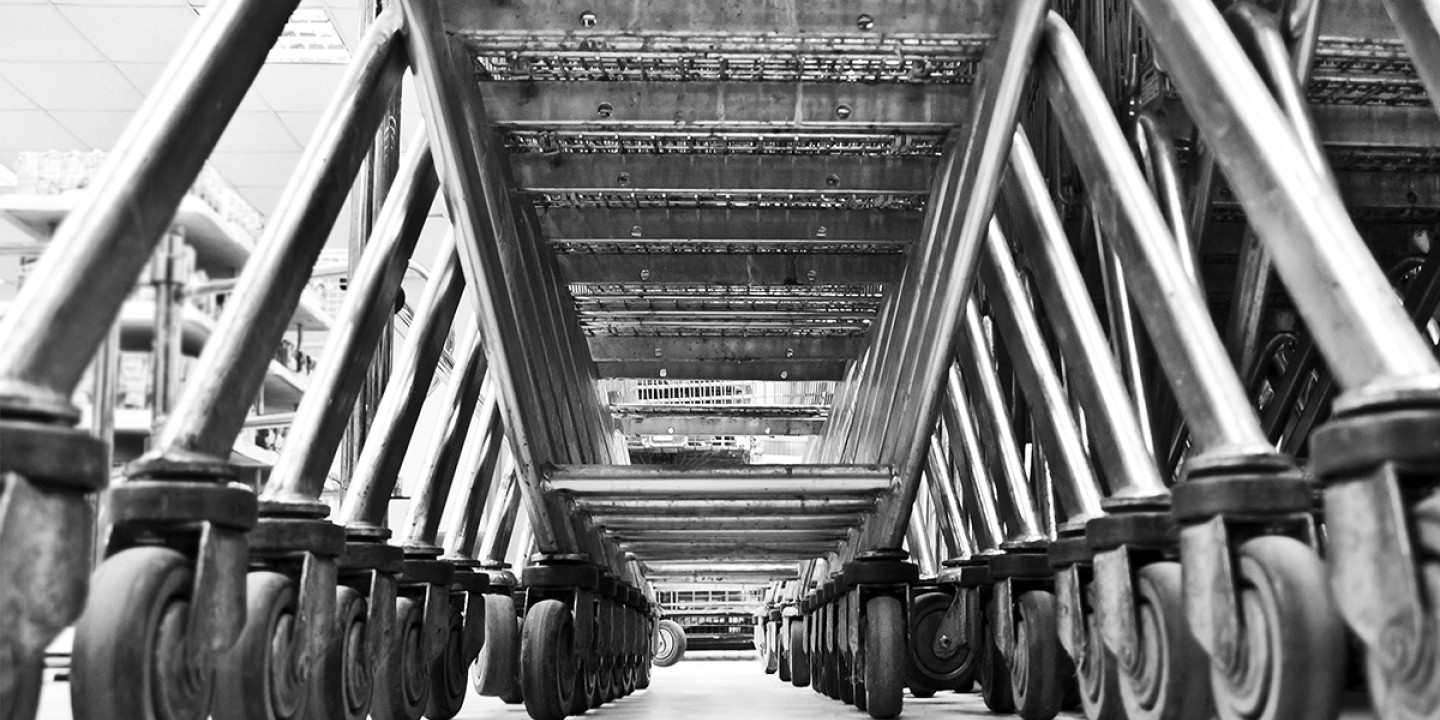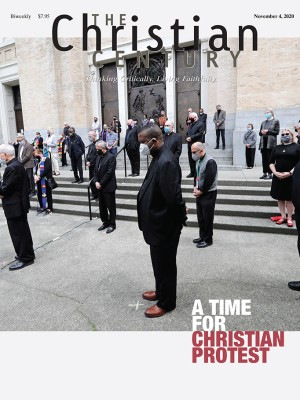My brother is an essential worker at a grocery store
I wish we actually valued his dangerous work.

My brother works at a grocery store. At 7 a.m. most days, he clocks in and begins his shift. For the next six to eight hours, he bags groceries. He gathers shopping carts in the parking lot-turned-hot-plate by the Tennessee sun. He cleans up messes. He picks up trash. He helps customers load heavy sacks of food into the trunks of their cars. Sometimes they tip him; mostly they don’t. He works, hard and a lot.
When the pandemic proved to be not only a public health crisis but a political flashpoint, his work got harder. Now, in addition to the usual difficulties and indignities he might suffer in the course of his job, people cough in his face. In addition to the customers who shame him into repacking their groceries after he’s done it “wrong,” he has to wipe their spit off of shopping cart handles. Every day, he must brace himself for the name-calling, rage, and passive-aggressive attacks that have become part of his job.
Read our latest issue or browse back issues.
While much of our country celebrates essential workers like my brother for the work they’re doing to keep our lives afloat, praise is still rare when he’s on the job. The celebration of my brother seems to end with the kind messages he sees in his neighbors’ windows. The vulnerability and danger built into his job continue to be ignored.
I don’t mean only his vulnerability to viral infection or the danger of violence. I mean the vulnerability of having a job that might evaporate without warning. I mean the danger of low wages that compromise his ability to take care of his family. Those vulnerabilities existed long before the pandemic.
Talking to my brother and thinking about people doing essential work in extraordinary circumstances, a gospel story came to mind, a story about vulnerable people who risk their lives to take care of a person they love.
It was dawn. The night before, the Roman Empire had executed a low-wage worker for igniting a justice movement to liberate the poor. Three women left their homes, purchased spices and oil, and stole away to take care of the now dead felon whom they called “teacher” and “Lord.” This was essential work in the Jewish world of that ancient era, preserving and protecting the flesh of a deceased loved one. But either because they were afraid of persecution or because they were grieving their teacher and his seemingly failed promises, Jesus’ other disciples stayed home. So it was just these three women, made vulnerable both by the patriarchal conditions of their time and the political circumstances of their situation, who went to embalm Jesus, alone.
Of course, he was not in the tomb. Instead of a corpse they found an angel, who told them that Jesus was not there but had risen. Then the angel gave them a different kind of work to do. The angel told them to preach.
Terrified and confused, they fled and, at first, told no one the good news that Jesus had risen. Then another miracle occurred. Jesus showed up. He appeared to one of the women, Mary Magdalene, whose life he had saved from the demons who ravaged her. He blessed her with his miraculous presence, making good on the messianic promises that defined his teachings. After this, she heeded the angel’s exhortation and did the essential work to which she had been called.
To be honest, before this pandemic, before learning what my brother has to suffer as an essential worker in these extraordinary times, I never thought much about these women. I never considered how important Jewish embalming rituals were in Jesus’ context, and I never asked why it was only they who went out to do this essential work. I never imagined what risks they had to assume, what vulnerabilities they lived with and overcame to care for the seemingly failed savior they loved. These women were nowhere near the top of society’s list of important people, but Jesus still put them first, miraculously so.
Now, as I sit at home and think of my brother’s stories of angry, unmasked customers shouting in his face, I find myself led back to the example of one who did more than simply thank his friend for her willingness to brave persecution and vulnerability in order to take care of him. Jesus showed up.
How can I show up for my brother? How can we all do more than offer our gratitude to the people who bag our groceries or deliver our mail or mow our lawns? If we have the means, we can tip generously, and we can all extend extra kindness. We can consider first the people who typically come last. But social media messages and window signs of gratitude are far from sufficient.
If someone in my family should fall ill and die, my brother would get only one day of paid bereavement leave. When he works double shifts because a coworker’s child has a fever, he gets no special compensation. As food, gas, and housing costs continue to rise, my brother still makes only $8.25 per hour, which is only one dollar higher than the federal minimum wage set in 2009. A worker deemed essential in an economy as large and as powerful as ours shouldn’t have to choose between traveling a few days to a loved one’s funeral and a full week’s pay.
I wish I had the right policy schematics, the right analyses and studies, and the right political game plan to make change a reality. Instead, I’m left with the longing for a miracle. It’s the longing for a future in which essential work is afforded the dignity it deserves as labor that has value.
Tomorrow my brother will get up and get ready for work. He’ll put on his neon yellow vest. He’ll clip on his name tag. He’ll bag groceries. He’ll retrieve shopping carts. Meanwhile, I’ll pray that he won’t have to clean saliva from cart handles and that no one coughs on him. I’ll also pray that one day he’ll show up for a job that pays him a livable wage. I’ll pray that one day he’ll clock in and know, if he has to work overtime, he’ll be paid for it. I’ll pray for a miracle.
A version of this article appears in the print edition under the title “My brother’s hard days.”






